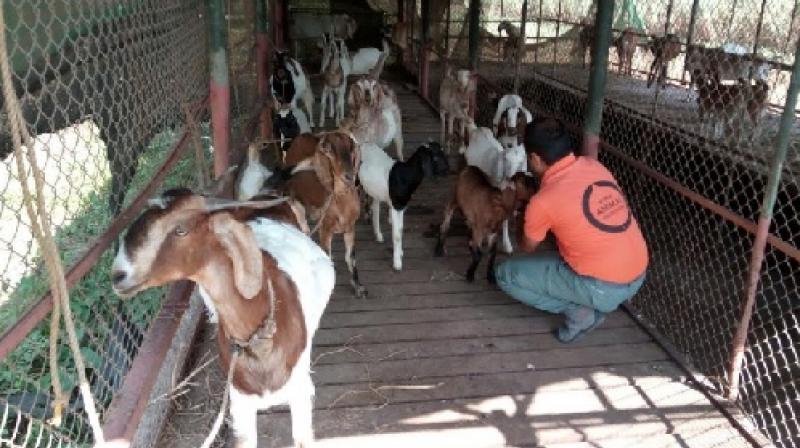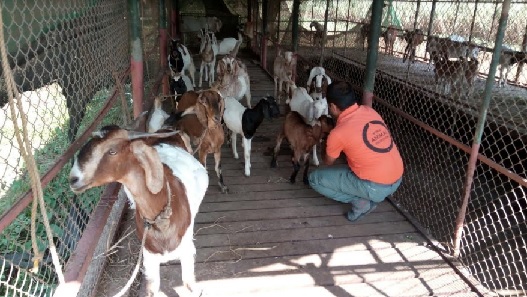All the Indian states must include animals in disaster plans to save communities
Animal health, welfare and protection has massive implications for community nutrition, food security and agricultural output.

Today, to mark International Day for Disaster Reduction, World Animal Protection is urging the central government and all the state governments to ensure that efforts to reduce disaster risk include animal protection are in place.
 |
World Animal Protection helped affected animals by providing cattle feed and mineral mixture in several flood affected areas in Kerala
India has been leading the way by integrating animals in the national disaster management policy, plans and as well as in the search and rescue operations. Today we urge the Government of India to set up a Veterinary Emergency Fund for effective implementation of these initiatives.
World Animal Protection also urges all the States and Union Territories in India to develop their dedicated State Animal Disaster Management Plans with all the required financial and technical resources in place so that we can ensure that animals and the livelihood of the people are protected from any future disasters.
Animal health, welfare and protection has massive implications for community nutrition, food security and agricultural output. 2.5 billion people around the world are small-scale farmers, herders, pastoralists, fishers or are forest-dependent – all of them rely on animals for their livelihoods. 18 of the poorest countries are reliant on livestock.
Animal-dependent communities are extremely vulnerable to natural disasters; many of the countries with the highest densities of livestock keepers are also those with high multi-hazard ratings. A comprehensive study of 78 post-disaster needs assessments, covering 48 developing countries, found that crop and livestock losses amounted to more than $24 billion.
World Animal Protection deploys teams around the world when disasters hit - most recently to Sulawesi, Indonesia, following the tsunami just a couple of weeks ago.
World Animal Protection recently responded to the Kerala floods in India by providing cattle feed and mineral mixture in the flood affected areas of Alappuzha, Pathnamthitta, Kottayam, Ernakulam and Thrissur districts along with the Department of Animal Husbandry, Government of Kerala and the Indian Red Cross Society – Kerala State Branch. This flood relief operation for animals has directly benefitted 34852 animals and the livelihood of 12504 households.
Gajender K Sharma, India Country Director, World Animal Protection, says, “The recent floods in Kerala is a painful reminder that governments need to prepare for natural disasters. In addition to the high loss of human and animal life, the agricultural, fishing and cattle breeding industries have been badly damaged. This will have a long-term effect on the recovery of the state.”
Target C of the Sendai Framework, an international agreement adopted by UN member states with the aim of reducing disaster risk globally, is the focus of this year’s International Day for Disaster Reduction. It centres on reducing disaster economic losses in relation to global GDP by 2030.
Gajender continues, “To successfully reduce disaster economic losses, the protection of animals must be taken more seriously. We have seen economies and communities suffer from a lack of preparedness. It is essential that animal-inclusive disaster risk reduction strategies are adopted.”
Find out more about our work: https://www.worldanimalprotection.org.in/our-work/protecting-animals-disaster.
Disclaimer: This article has not been edited by Deccan Chronicle and is taken from a syndicated feed. Photos: NewsVoir.

